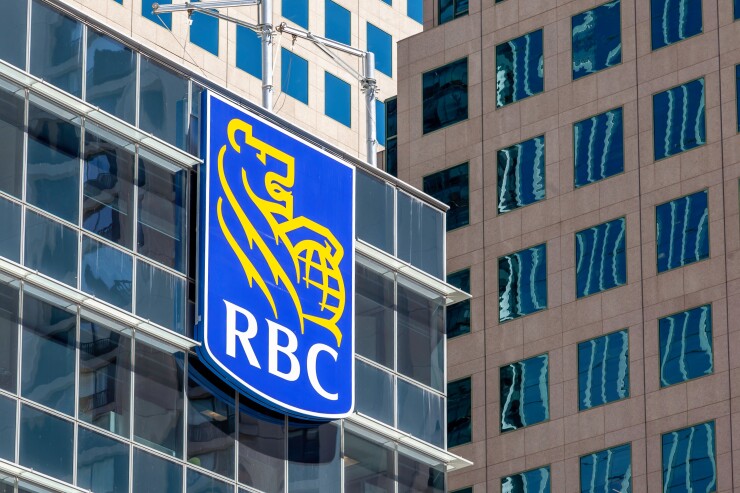Although an advisor at RBC Wealth Management wasn't scheduled to check in with a particular client until May, she decided to pick up the phone early, after a little prompting from AI.
RBC's artificial intelligence system, provided by the technology firm TIFIN AG, tipped the advisor off that something big had happened in her client's life, said
The earlier-than-scheduled call gave the advisor an opportunity not only to express her condolences but also to learn of a pertinent wealth management fact: Her client was the chief beneficiary of her deceased friend's roughly $1 million estate.
"And the client said, 'You know, it's funny that you're calling me out of the blue because I've been meaning to call you,'" according to Beltzer.
In a report released in January, the consulting giant McKinsey found that advisors are using AI mainly "to generate and synthesize meeting notes, draft financial plans and client briefs, support compliance reporting and serve as a virtual assistant." Rather than replace financial planners,
READ MORE:
Also in January, the asset management giant
Wally Okby, a
"And they're all important and competing for attention and action," Okby said. "It's actually a very daunting and overwhelming reality that many people just can't handle."
Beltzer said RBC Wealth Management's AI system should help put the firm at the front of the line for managing assets that clients might have either recently acquired or might be thinking of moving out of another firm. Beltzer said the technology does this by scanning both public information and internal records for signs of "financial events" that raise the chances that a client will either have new money to invest or a willingness to move cash elsewhere to RBC.
Those events could include other big changes like the loss of close friends and relatives or the sudden acquisition of assets an advisor might not have been aware of. The latter could be everything from inherited wealth to a painting, statue or other artwork. Beltzer said the exact steps TIFIN AG's system uses to scan for these events are proprietary and involve scanning information on public websites and internal financial records.
Like most AI applications, the technology expedites a task that would be much more labor intensive and time-consuming for a person to perform. Beltzer said RBC Wealth Management announced on Wednesday that it has entered into an agreement with TIFIN to offer the AI system to all of its advisors after testing it out in two previous rounds of a pilot program.
Jeff Koeneman, the chief experience officer at TIFIN AG, said RBC's more than 2,000 advisors in the U.S. are all now equipped to use the system.
"We know that time is one of the most valuable currencies out there," he said. "So if you focus your time and effort on those who are likely, in this case, to consolidate their assets with RBC, we feel that we've got a really unique value proposition in the marketplace today."
Even before the adoption of the new system, Beltzer said, RBC advisors should have been familiar enough with their clients to know if they are holding assets away at other institutions.
"So that's not anything that's new," Beltzer said. "But we're trying to capture a moment where there was some kind of life event or some kind of money in motion, of transferring assets from one place to another, where there might be a probability to move those assets to RBC."
Beltzer said many people in the wealth management industry are naturally a little wary of AI, in part because they worry about how it might be perceived by clients. RBC advisors are trained to approach using the new system with tact.
Rather than pick up the phone to inquire about a specific financial event flagged by the AI system, an advisor will instead simply reach out to clients to see how they're doing. It's just that these regular checkups may come a bit earlier than initially scheduled.
"It's not for them to say, 'Hey, our AI model says that you have money in motion,'" Beltzer said. "It's more of a conversation on how they're doing, and it's just a check-in. So, if anything, all it's doing is augmenting the service model to say, 'Hey, maybe it's a good time to check in.'"
Beltzer said this is just the beginning of RBC's experiments with AI. He expects the firm to work with TIFIN AG to roll out at least three more applications of the still new technology in the coming year.
Koeneman declined to provide specifics about the coming uses of AI but did mention some needs the technology could help meet. Firms like RBC are always looking for ways to find new client leads and prevent assets from leaving to go elsewhere.
Koeneman said there's also great interest in finding ways to manage money inherited in the coming "
"There's a number of different growth challenges out there that firms are approaching us with," Koeneman said. "And we're able to kind of spin up new packages and add two or three every quarter, so that we ultimately have this menu of options for enterprises to choose from to really help them bring more people into the world of financial advice."






